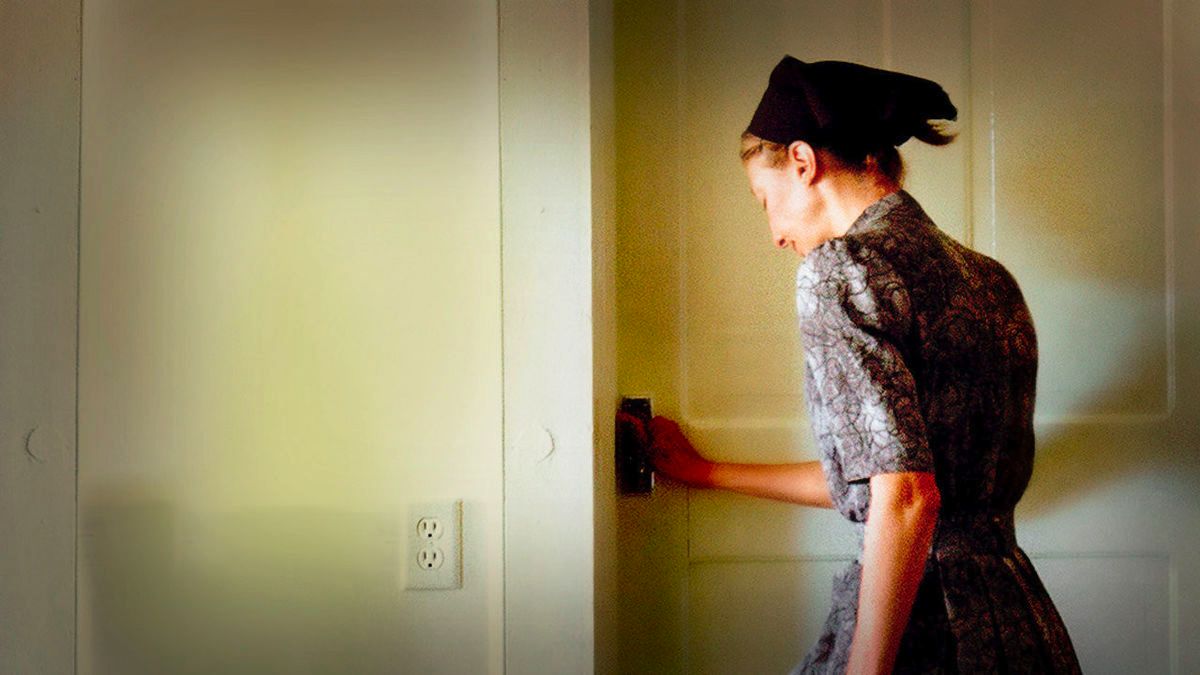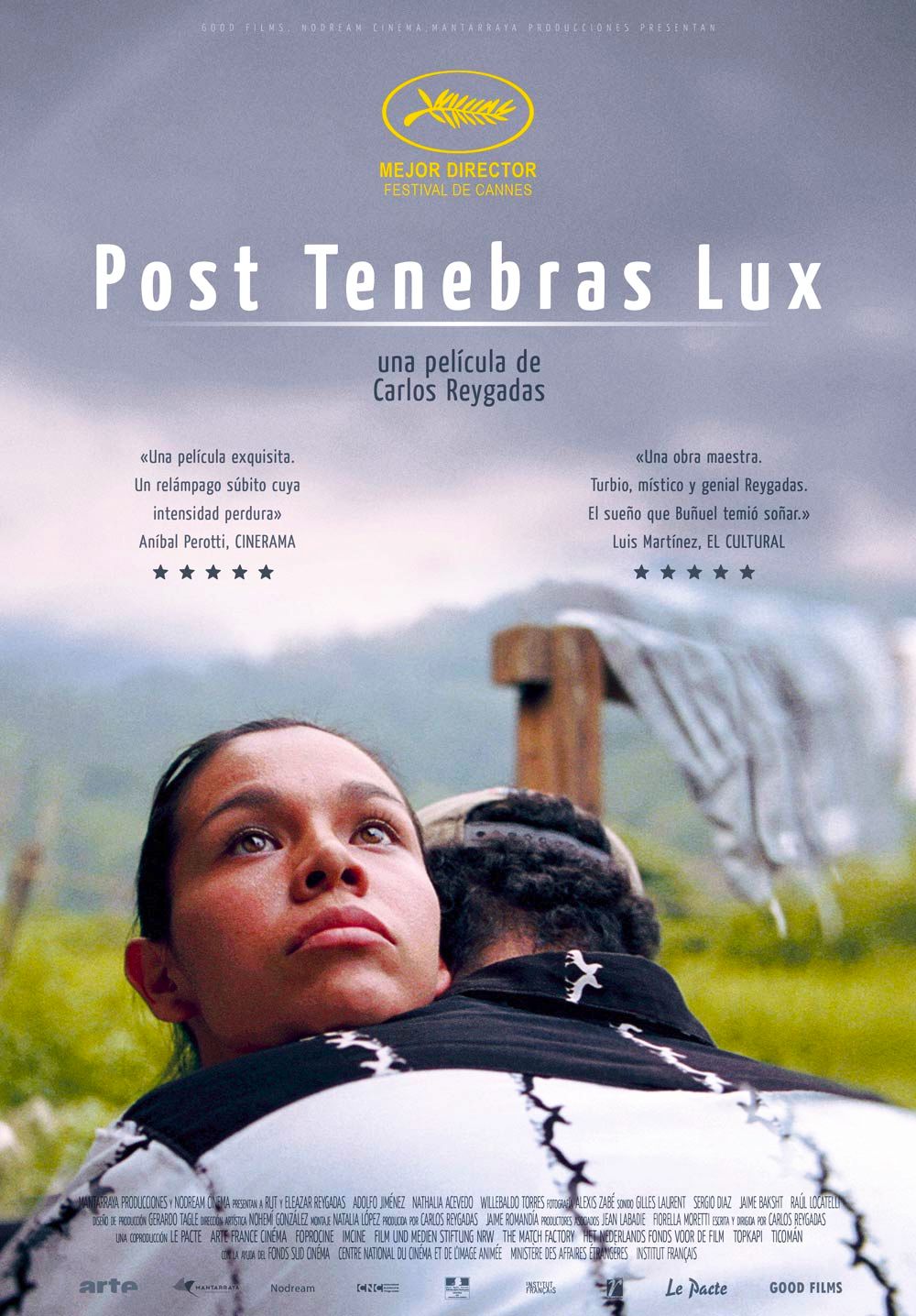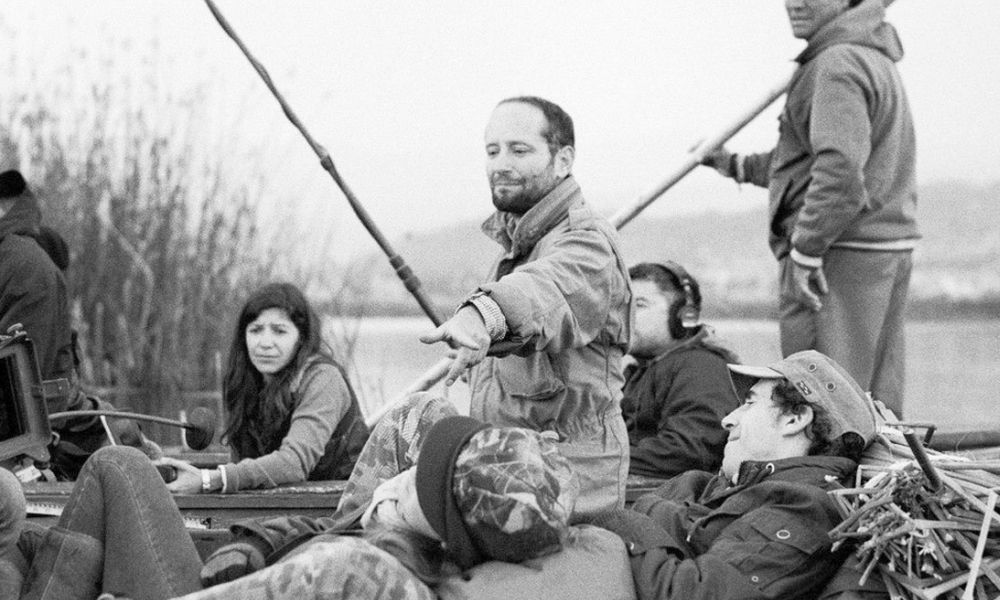"Casting non-professionals in the style of Bresson - in some cases random people plucked directly off the street - and employing external spaces and architecture as poetic visual metaphors for his characters' anguished inner states, Reygadas creates philosophical marvels about the human condition that have earned him an international following." - Andrew Bailey (Cinema Now, 2007)
Carlos Reygadas
Director / Screenwriter / Producer
(1971- ) Born October 10, Mexico City, Distrito Federal, Mexico
21st Century's Top 100 Directors
(1971- ) Born October 10, Mexico City, Distrito Federal, Mexico
21st Century's Top 100 Directors
Key Production Countries: Mexico, Netherlands, Germany, France
Key Genres: Drama, Rural Drama, Psychological Drama, Family Drama, Romantic Drama, Avant-garde/Experimental
Key Collaborators: Jaime Romandia (Producer), Rut Reygadas (Leading Actress), Diego Martínez Vignatti (Cinematographer), Alexis Zabe (Cinematographer), Eleazar Reygadas (Leading Character Actor)
Key Genres: Drama, Rural Drama, Psychological Drama, Family Drama, Romantic Drama, Avant-garde/Experimental
Key Collaborators: Jaime Romandia (Producer), Rut Reygadas (Leading Actress), Diego Martínez Vignatti (Cinematographer), Alexis Zabe (Cinematographer), Eleazar Reygadas (Leading Character Actor)
"For some critics, he is the Mexican Robert Bresson, making films that are stark, spiritual and often incandescent. For others, his movies are exploitative, turgid and self-regarding. A product of Mexico's upper class and a former member of the national rugby team, Reygadas trained as a lawyer, and worked in the foreign service in Brussels before leaving to become a filmmaker." - Lloyd Hughes (The Rough Guide to Film, 2007)
"Mexican filmmaker Carlos Reygadas has become one of the most prominent directors in contemporary world cinema. The critical reception of his work seems to be unanimous at least in two respects: that these are films concerned with a metaphysical dimension and that this is the result of particular cinematic influences: Robert Bresson, Carl Theodor Dreyer, Andrei Tarkovsky, and to a lesser extent, Roberto Rossellini." - Tiago de Luca (Senses of Cinema, 2010)

Silent Light (2007)
"While Mr. Reygadas doesn’t always make it easy to watch his work (occasionally the reverse), the Carlos Reygadas Experience is always a worthwhile trip. And head-tripping is very much part of Mr. Reygadas’s cinema, whether or not he’s tethered his sometimes lovely, sometimes appalling visions to a strong narrative… Class and race figure into much of Mr. Reygadas’s work, often as a source of palpable, violent tension that simmers and simmers until it erupts without explanation or, at times, evident reason." - Manohla Dargis (The New York Times, 2013)
"Few Mexican filmmakers have achieved the global exposure of Carlos Reygadas, although he’s not exactly a spokesperson for the country’s allure. Reygadas’ formally daring, visually inventive narratives present spectacular and frequently unsettling perspectives of Mexican life from the countryside to the big city, all of which he depicts with a mixture of haunting lyricism, curiosity and dread. Even in its more ominous moments, however, Reygadas’ cinema maintains a transcendental sense of beauty. Inspired by the epic scope of Andrei Tarkovsky, Reygadas also pulls liberally from countless other art film tropes while conveying a poetic stillness that has, over the last decade, developed into his own imprint. Reygadas’ films tend to surprise and frustrate viewers in equal measures, but the boldness of his vision tends to win out." - Eric Kohn (IndieWire, 2013)
"Born in Mexico City, Carlos Reygadas was a lawyer specializing in armed-conflict resolution in Brussels when he decided to try his hand at making films at the age of 30. He quickly became a unique voice in cinema with his first feature, Japón (2001), which received a special mention for the Camera d’Or at Cannes that year. In his three films since, Reygadas has developed his cinematic language and abilities, as well as his reputation for making aesthetically uncompromising and provocative films. If his second film, Battle in Heaven (2005), cemented his reputation as a provocateur, his following Silent Light (2007), set among a Mennonite farming community in Northern Mexico, was hailed as a spiritual masterpiece by the likes of Martin Scorsese." - David Barker (Filmmaker Magazine, 2013)
"I find it much more interesting to be able to see life rather than being told a story. I’ve heard of a lot of people, especially confused critics, that want to be told stories. When they’re not told stories, they get bored. They cannot observe and they cannot be taken in by just observing and being there. That’s not enough for them. They want to be told the story. But for me, it’s exactly the opposite of what is most interesting." - Carlos Reygadas (MovieMaker, 2019)
Selected Filmography
{{row.titlelong}}
Carlos Reygadas / Favourite Films
Andrei Rublev (1966) Andrei Tarkovsky, Distant Voices, Still Lives (1988) Terence Davies, Gummo (1997) Harmony Korine, A Man Escaped (1956) Robert Bresson, Mother and Son (1997) Aleksandr Sokurov, Los Olvidados (1950) Luis Buñuel, Persona (1966) Ingmar Bergman, Sansho the Bailiff (1954) Kenji Mizoguchi, El Verdugo (1963) Luis García Berlanga, Werckmeister Harmonies (2000) Béla Tarr.
Source: Sight & Sound (2012)
Andrei Rublev (1966) Andrei Tarkovsky, Distant Voices, Still Lives (1988) Terence Davies, Gummo (1997) Harmony Korine, A Man Escaped (1956) Robert Bresson, Mother and Son (1997) Aleksandr Sokurov, Los Olvidados (1950) Luis Buñuel, Persona (1966) Ingmar Bergman, Sansho the Bailiff (1954) Kenji Mizoguchi, El Verdugo (1963) Luis García Berlanga, Werckmeister Harmonies (2000) Béla Tarr.
Source: Sight & Sound (2012)
Carlos Reygadas / Fan Club
Brandon Harris, Michael Atkinson, Nadav Lapid, Isaac León Frías, David Heslin, Mike D'Angelo, J. Hoberman, Ricardo Bedoya, Glenn Kenny, David Jenkins, Nellie Killian, Scott Foundas.
Brandon Harris, Michael Atkinson, Nadav Lapid, Isaac León Frías, David Heslin, Mike D'Angelo, J. Hoberman, Ricardo Bedoya, Glenn Kenny, David Jenkins, Nellie Killian, Scott Foundas.
"Fan Club"
These film critics/filmmakers have, on multiple occasions, selected this director’s work within film ballots/lists that they have submitted.
These film critics/filmmakers have, on multiple occasions, selected this director’s work within film ballots/lists that they have submitted.


